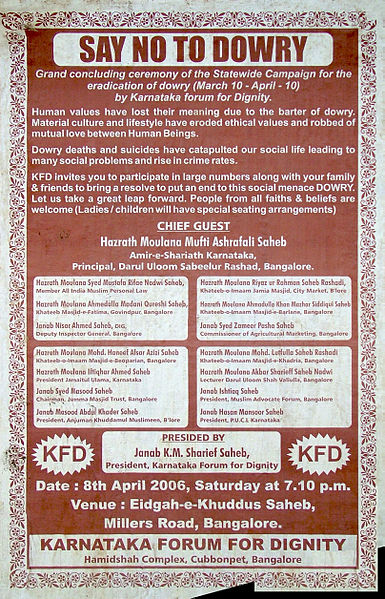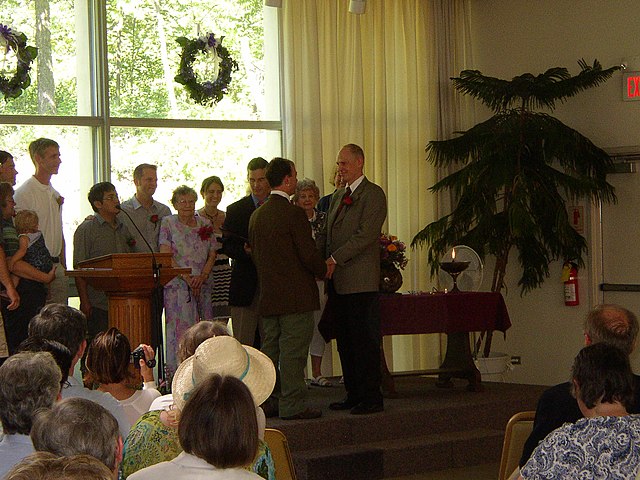The dowry system in India refers to the durable goods, cash, and real or movable property that the bride's family gives to the groom, his parents and his relatives as a condition of the marriage. Dowry is called "दहेज" in Hindi and as جہیز in Urdu.
Wedding Procession - Bride Under a Canopy with Gifts. Circa 1800.
A social awareness campaign in India about dowries
Marriage, also called matrimony or wedlock, is a culturally and often legally recognised union between people called spouses. It establishes rights and obligations between them, as well as between them and their children, and between them and their in-laws. It is nearly a cultural universal, but the definition of marriage varies between cultures and religions, and over time. Typically, it is an institution in which interpersonal relationships, usually sexual, are acknowledged or sanctioned. In some cultures, marriage is recommended or considered to be compulsory before pursuing sexual activity. A marriage ceremony is called a wedding, while a private marriage is sometimes called an elopement.
Indian Hindu wedding with the bride and groom in traditional dress.
Chinese immigrant with his three wives and fourteen children, Cairns, 1904
A same-sex couple exchanging wedding vows in a Unitarian Universalist Fellowship
In an 1828 "Wife Wanted" advertisement, an Englishman claiming a "great taste for building" pledges to apply a prospective wife's dowry-like £1000+ to build property that will be "settled on her for life".






